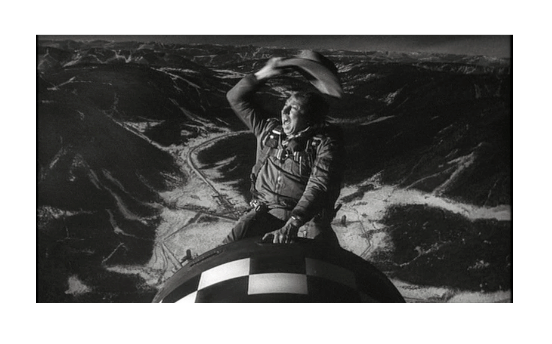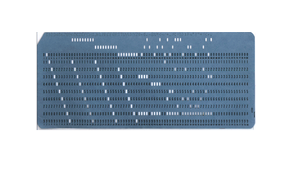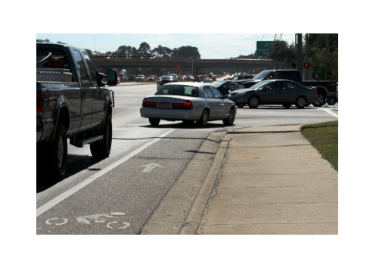The Anti-Logic Primer™
by AGAAS
ih-laj-i-kul: 1. contrary to or disrespectful of the rules of logic; unreasoning; absurd.

The Mr. Spock character and Star Trek® are registered trademarks owned by CBS and Paramount Pictures Corporation.
Several terrific troubleshooting methodologies aren't listed below. They're in the other primer. These are the less-than-terrific ones. Fear not, though, because the methods shown here remain strangely popular, even if they don't make a lot of sense. In fact, these approaches remain some of the most commonly forms of attempted troubleshooting.
The Anti-Logic Primer is a light-hearted look at how we humans respond to problems, and also interact with others. But reality is not always so funny. Delays, waste, unnecessary frustration, and anger can result when we do not apply the proper problem-solving approach and attitude. Although imperfect approaches may eventually accomplish the task at hand, there are real costs to poorly disciplined, reactive, or lethargic troubleshooting. This can mean that:
- Facts are slowly (and possibly never) recognized.
- Assumptions become too numerous, or without proper basis.
- Production slows, costs increase, mistakes multiply, and customers are lost.
- Politics (the struggle for resources) elevate an individual's needs over that of the greater organization and its customers.
- Records and notes are not kept, resulting in wasteful and repeated efforts later.
So why would anyone adhere to problem solving styles with such defects? There are many reasons, but a key one is that we often don't know a better way. Most of us really enjoy the feeling of accomplishment after solving a difficult problem, but it can be "painful" to take ownership of a problem in the beginning. Ego, the need to feel right, is something most of us suffer from -- at least occasionally.
There are other reasons, but when one understands their result and better alternatives, it really is illogical to keep doing things in a poor manner. It's almost like we are living in a parallel universe of inefficiency!
Click on a link below to jump to a topic.
Behavior's Effect On Anti-Logic
10% Inspiration, 10% Perspiration, 80% Pic-in-nic Baskets
All Play and No Work
10% Inspiration, 10% Perspiration, 80% Pic-in-nic Baskets
All Play and No Work


It's possible. You might find it.
You will almost certainly find the solution to any problem by just jumping right in and trying things, but it might take you the better part of your lifetime to get there. Then again, it's also still possible you might never find the cause. Now don't get us wrong: hard work usually yields good results. But focusing that work in a careful, methodical way would be better than starting randomly. It takes some practice, and even forethought. The time and effort spent will probably be worth it, though.
Return
Return

Impulse: Go Now!
Impatience. Impetuousness. Downright panic.
These types of behaviors are rooted in emotion, and while there is something to be said for rolling-up the sleeves and getting down to work, it's usually best to know in advance what likely outcomes can be expected. Those who fly in airplanes or on top of rockets have small libraries of procedures to handle virtually any problem conceivable. In the off-hand chance you don't have such a resource, there's nothing wrong with taking a moment -- even in an emergency -- to consider two or three courses of action, and picking the best one. Given a choice between poor action or no action, the latter might even preferable.
Return
These types of behaviors are rooted in emotion, and while there is something to be said for rolling-up the sleeves and getting down to work, it's usually best to know in advance what likely outcomes can be expected. Those who fly in airplanes or on top of rockets have small libraries of procedures to handle virtually any problem conceivable. In the off-hand chance you don't have such a resource, there's nothing wrong with taking a moment -- even in an emergency -- to consider two or three courses of action, and picking the best one. Given a choice between poor action or no action, the latter might even preferable.
Return


There is often a better way of doing things.
If 10 slices of cheese pizza are good, then 20 slices of cheese pizza must be twice as good.
There's a theory that a problem cannot be solved at the level it was created, meaning that while something relatively easy can cause a problem, it can be much more difficult to find what that problem is without further measurement or consideration.
What this means is, say, you have to program a computer a few bytes at a time. That may have worked well in 1964, but it might not be so practical in 2017. The solution from 1964 cannot be solved just by throwing more and more punchcards at the problem. At some point, a rethink is needed.
Return
There's a theory that a problem cannot be solved at the level it was created, meaning that while something relatively easy can cause a problem, it can be much more difficult to find what that problem is without further measurement or consideration.
What this means is, say, you have to program a computer a few bytes at a time. That may have worked well in 1964, but it might not be so practical in 2017. The solution from 1964 cannot be solved just by throwing more and more punchcards at the problem. At some point, a rethink is needed.
Return

Original photo by the ESA's Cassini-Huygens space probe.
Two kids are arguing…
Kid #1: "You're a dweeb!"
Kid #2: "No I'm not. YOU'RE a dweeb!"
Kid #1: "Prove it!"
Ah, memories.
You probably know that the Greek letter ᴨ (Pi) represents the ratio of a circle's circumference to it's diameter. You also probably know that the ratio has no final value -- it's an irrational number, as mathematicians would say, as it's divided result seemingly goes on forever. Some people proudly recite 20, 40, maybe even 100 digits of ᴨ from memory. The world record is actually around some 67,000 digits. Yes, from memory. We'd rather polish a parade square with a toothbrush.
But others apparently took our advice, used some Lateral Thinking, and let a computer do the work. As of 2016, Pi has been calculated to over 13.3 trillion digits. That's nice to know, just in case you are doing some circular cuts in your woodworking project over the weekend.
Though theories and near-proofs abound, no one really knows if Pi has a final resolution to its digits, yet for all practical purposes, the decimal places are infinite. But is that really provable? Though a fun debate, there comes a point where something just cannot be proven in any practical sense, and if that's the case, why try? (again, we're talking practical application)
You'd probably have a better chance of discerning if your little brother is a dweeb or not.
Return
Kid #1: "You're a dweeb!"
Kid #2: "No I'm not. YOU'RE a dweeb!"
Kid #1: "Prove it!"
Ah, memories.
You probably know that the Greek letter ᴨ (Pi) represents the ratio of a circle's circumference to it's diameter. You also probably know that the ratio has no final value -- it's an irrational number, as mathematicians would say, as it's divided result seemingly goes on forever. Some people proudly recite 20, 40, maybe even 100 digits of ᴨ from memory. The world record is actually around some 67,000 digits. Yes, from memory. We'd rather polish a parade square with a toothbrush.
But others apparently took our advice, used some Lateral Thinking, and let a computer do the work. As of 2016, Pi has been calculated to over 13.3 trillion digits. That's nice to know, just in case you are doing some circular cuts in your woodworking project over the weekend.
Though theories and near-proofs abound, no one really knows if Pi has a final resolution to its digits, yet for all practical purposes, the decimal places are infinite. But is that really provable? Though a fun debate, there comes a point where something just cannot be proven in any practical sense, and if that's the case, why try? (again, we're talking practical application)
You'd probably have a better chance of discerning if your little brother is a dweeb or not.
Return



Statistically, turning left is several times more dangerous than turning right. If you were speaking to someone who had never seen a car before, and without regard to any additional facts, one might presume that right turns are the only turns worth making, and therefore, you should never ever turn left again. Technically speaking, you might be safer, but that next cross-town trip may take an awfully long time.
A quick presumption saves a few seconds, but might cost a great deal more time in the future. Some presumptions are good. They sun comes up in the east, and sets in the west. (Usually, at least. Someone at the North Pole might take an issue with that.) Your left shoe typically fits only on your left foot. And the toilet seat will always be left down. Well, 2 out of 3 isn't bad.
But in troubleshooting, use care with presumptions -- ANY presumption. The solutions to difficult faults are often missed because something is presumed to be working when it really isn't. Pride is often a cause for making an unfounded assumption: I am an expert in conveyor belts. I looked at the conveyor belt, and the belt is moving. Therefore, the belt is working properly. But what if the belt is slipping, or moving imperceptibly too slowly? Don't be put-off if someone insists upon checking the conveyor belt again, even though you thought it was fine.
Return
A quick presumption saves a few seconds, but might cost a great deal more time in the future. Some presumptions are good. They sun comes up in the east, and sets in the west. (Usually, at least. Someone at the North Pole might take an issue with that.) Your left shoe typically fits only on your left foot. And the toilet seat will always be left down. Well, 2 out of 3 isn't bad.
But in troubleshooting, use care with presumptions -- ANY presumption. The solutions to difficult faults are often missed because something is presumed to be working when it really isn't. Pride is often a cause for making an unfounded assumption: I am an expert in conveyor belts. I looked at the conveyor belt, and the belt is moving. Therefore, the belt is working properly. But what if the belt is slipping, or moving imperceptibly too slowly? Don't be put-off if someone insists upon checking the conveyor belt again, even though you thought it was fine.
Return

Answer: Congress, a stock exchange, and a 5-grade classroom.
And the question is: Name three places where you'd be more confused than standing in the middle of a herd of stampeding elephants.
Now we want to be careful here. If you've ever watched 70,000 fans stream into a football stadium 1 hour prior to the game, something interesting happens:
i. Those thousands of people invariably criss-cross past each other in the most unpredictable, random, unplanned way imaginable.
ii. Notwithstanding number i. above, they all make it to their seats on-time, to their precisely assigned seat, and no less with a $10 hot dog in hand.
So there can be sensible patterns to seemingly chaotic systems. But sometimes, such as in a leaderless environment, or in a new situation without a process to follow, the need to act gives way to strange results. A flexible, challenge-a-day Skunkworks environment is one thing, but all tasks must have a goal, and a way to accomplish it. When everyone knows what the goal is, and has a reason to contribute, even apparent chaos can yield results. But take away that purpose, or how to accomplish it, and you might be left to the irrationality of a crowd.
Return
And the question is: Name three places where you'd be more confused than standing in the middle of a herd of stampeding elephants.
Now we want to be careful here. If you've ever watched 70,000 fans stream into a football stadium 1 hour prior to the game, something interesting happens:
i. Those thousands of people invariably criss-cross past each other in the most unpredictable, random, unplanned way imaginable.
ii. Notwithstanding number i. above, they all make it to their seats on-time, to their precisely assigned seat, and no less with a $10 hot dog in hand.
So there can be sensible patterns to seemingly chaotic systems. But sometimes, such as in a leaderless environment, or in a new situation without a process to follow, the need to act gives way to strange results. A flexible, challenge-a-day Skunkworks environment is one thing, but all tasks must have a goal, and a way to accomplish it. When everyone knows what the goal is, and has a reason to contribute, even apparent chaos can yield results. But take away that purpose, or how to accomplish it, and you might be left to the irrationality of a crowd.
Return

Feel free to take on as much as you can, whenever you can. After all, doing a little bit of everything is still productive, plus it allows you to make progress on several fronts. Right?
We've all done it. We have said we're "multi-tasking". Some of you might even be surprised to see this concept located in the Anti-Logic Primer. But it's long been established that no human can really do more than one thing at a time. Witness: Driving and texting. Watching TV while cooking dinner. Patting your head and rubbing your stomach (to up this challenge, also try saying the alphabet backwards). When you multi-task, what you're really doing is briefly ignoring one or more ongoing tasks while doing another, hoping that those short absences of attention won't have any ill consequences before you can return to them.
If it takes you 1 hour to paint a room, and you have 5 rooms to paint, you cannot multi-task and paint all 5 rooms in 1 hour. One way or another, it's going to take you 5 hours to do the job (ignoring any possible benefit of process improvements). Ask yourself, how can multitasking any group of tasks really be all that different?
Interruptions are a way of life today, and it can be truly difficult, even impossible, to completely finish one task before going on to the next. But at the same time, controls have to be applied. Otherwise, things can get a little crazy, wasting time and resources, especially when you have to return to something that you stopped days or even months ago. Work space may get used up with all those half-completed projects, or you may have to re-learn what or why you did something.
Return
We've all done it. We have said we're "multi-tasking". Some of you might even be surprised to see this concept located in the Anti-Logic Primer. But it's long been established that no human can really do more than one thing at a time. Witness: Driving and texting. Watching TV while cooking dinner. Patting your head and rubbing your stomach (to up this challenge, also try saying the alphabet backwards). When you multi-task, what you're really doing is briefly ignoring one or more ongoing tasks while doing another, hoping that those short absences of attention won't have any ill consequences before you can return to them.
If it takes you 1 hour to paint a room, and you have 5 rooms to paint, you cannot multi-task and paint all 5 rooms in 1 hour. One way or another, it's going to take you 5 hours to do the job (ignoring any possible benefit of process improvements). Ask yourself, how can multitasking any group of tasks really be all that different?
Interruptions are a way of life today, and it can be truly difficult, even impossible, to completely finish one task before going on to the next. But at the same time, controls have to be applied. Otherwise, things can get a little crazy, wasting time and resources, especially when you have to return to something that you stopped days or even months ago. Work space may get used up with all those half-completed projects, or you may have to re-learn what or why you did something.
Return

Belligerence. Stubbornness. Downright obstinance.
Who really has the right-of-way on an issue?
There are legitimate reasons to go with an absolute opinion of one - experience, facts not known to others, risk, urgency, etc. But usually, at least if time allows, a second opinion is well-advised.
The commander of a aircraft carrier task force can certainly make any decision without help, but every ship in the convoy has a captain, and every captain has a first officer. Requesting a contribution from others, based on facts, can be very helpful. And why not? The collective intelligence of a group is (almost) always greater than that of an individual, so long as the group is organized (see Random Chaos). It's the same for the leader of a company, or the leader of a country.
For years, Cisco Systems® has strived to make strategic decisions with teams, rather than individuals. Though potentially more time-consuming, this method leverages all the experiences and backgrounds of a group of people. You can rule-out ideas later, but listening to as many ideas as possible can lead to amazing things.
On a good day, you may be the biggest car on the road. On a bad day, you may be staring down something bigger than you. Stay flexible, and know when to stay the course, but also when to turn off.
Return
Who really has the right-of-way on an issue?
There are legitimate reasons to go with an absolute opinion of one - experience, facts not known to others, risk, urgency, etc. But usually, at least if time allows, a second opinion is well-advised.
The commander of a aircraft carrier task force can certainly make any decision without help, but every ship in the convoy has a captain, and every captain has a first officer. Requesting a contribution from others, based on facts, can be very helpful. And why not? The collective intelligence of a group is (almost) always greater than that of an individual, so long as the group is organized (see Random Chaos). It's the same for the leader of a company, or the leader of a country.
For years, Cisco Systems® has strived to make strategic decisions with teams, rather than individuals. Though potentially more time-consuming, this method leverages all the experiences and backgrounds of a group of people. You can rule-out ideas later, but listening to as many ideas as possible can lead to amazing things.
On a good day, you may be the biggest car on the road. On a bad day, you may be staring down something bigger than you. Stay flexible, and know when to stay the course, but also when to turn off.
Return
Behavior and Logic

You don't really need to eat a good meal before work. We all know the breakfast of champions, that 1st tier brain-food: coffee and a donut. And you can always follow that up with a heavy meal at lunch too -- you know, to settle you down for a nice afternoon nap during the conference call. (This would be sarcasm.)
Food is fuel for your mind. You may not have a picture of the Food Pyramid on your refrigerator anymore, but it's worth noting that a balanced diet will give you the energy and nutrition your body needs to get through the day. Sure you can eat a whole bucket of fried chicken by yourself. For lunch. Just consider what your body really needs to stay alive though. Folks working outside during the summer will have a different diet than those sitting at a cube in the winter, but in either case, try to give your body the best fuel available.
Now lest the Food Nazis are let loose, we would only point out that cars need fuel too, and if you don't give one what it needs, it won't run well or for long. We're just trying to give you a gentle reminder: the day can really be a drag if you're tired, and diet is a huge factor for that. Just sayin'.
Return
Food is fuel for your mind. You may not have a picture of the Food Pyramid on your refrigerator anymore, but it's worth noting that a balanced diet will give you the energy and nutrition your body needs to get through the day. Sure you can eat a whole bucket of fried chicken by yourself. For lunch. Just consider what your body really needs to stay alive though. Folks working outside during the summer will have a different diet than those sitting at a cube in the winter, but in either case, try to give your body the best fuel available.
Now lest the Food Nazis are let loose, we would only point out that cars need fuel too, and if you don't give one what it needs, it won't run well or for long. We're just trying to give you a gentle reminder: the day can really be a drag if you're tired, and diet is a huge factor for that. Just sayin'.
Return

"So, you want to learn how to pass variables in PASCAL this Saturday night?"
"Um, no, I think I might just go to that party after all…"
Ever use eBay®? How about YouTube®? It's amazing how fast 6 hours can pass by. In just one sitting.
What about the news? Or email? Both on your PC, and on your smart phone, of course.
Now you can probably see where we're going here, and we know what you're thinking: "Oh-oh. This primer is going to moralize me into an inflexible, disrespectful, and unobtainable lecture on how I work."
We wouldn't think of it. Really.
In fact, most of this lecture that we are not going to give you wouldn't even be your fault. The Information Age is over, and the Discarding Age has begun. With meetings, conference calls, video, email, texts, instant-messaging, clouds, passwords, and keys, not to mention good old remaining stacks of paper, it's amazing what we have to accomplish every single day, and that's just to make sure you are communicating. Then you still actually have to do your job.
The challenge is really one of discipline. It isn't realistic to say you won't check the news all day long. We'd go so far as to say that you probably should check the news, just in case there's something you need to know about. But try this: read 2, maybe 3 articles at most. That's it. If something more catches your eye, read it later. Or, just read the headlines. Practice rejection of information. Chances are, you've probably read much of it all before anyway. Do you really need to see another click-bait article on the Top Ten Cities for BBQ? Put another way, are you sure you want to endure all those advertisements that don't apply to you, just to read some unremarkable piece that probably contains little or no real new information that you haven''t already heard already, and that you will probably forget in 5 minutes anyway? Can you remember any of the articles that you read yesterday?? What about earlier today?
Email is similar - try checking it no more than 3 times per day. Although your local policies may differ, we would suggest that the sender of an email should not expect instant turn-around. That's what telephones are for. Of course, you still might see notifications for email anyway -- spam or otherwise. If it's affecting productivity, see if you can turn it off, or at least notify you only occasionally.
Checking the weather, scores, lottery tickets, and a myriad of other interests should have some limits like those above too, so you have time to get the things done that really NEED to get done.
And just think: If by saving all that time you're finished your tasks early, you can then click through articles like the Ten Best Cities for With Drive-In Theaters, with reckless abandon.
Return
What about the news? Or email? Both on your PC, and on your smart phone, of course.
Now you can probably see where we're going here, and we know what you're thinking: "Oh-oh. This primer is going to moralize me into an inflexible, disrespectful, and unobtainable lecture on how I work."
We wouldn't think of it. Really.
In fact, most of this lecture that we are not going to give you wouldn't even be your fault. The Information Age is over, and the Discarding Age has begun. With meetings, conference calls, video, email, texts, instant-messaging, clouds, passwords, and keys, not to mention good old remaining stacks of paper, it's amazing what we have to accomplish every single day, and that's just to make sure you are communicating. Then you still actually have to do your job.
The challenge is really one of discipline. It isn't realistic to say you won't check the news all day long. We'd go so far as to say that you probably should check the news, just in case there's something you need to know about. But try this: read 2, maybe 3 articles at most. That's it. If something more catches your eye, read it later. Or, just read the headlines. Practice rejection of information. Chances are, you've probably read much of it all before anyway. Do you really need to see another click-bait article on the Top Ten Cities for BBQ? Put another way, are you sure you want to endure all those advertisements that don't apply to you, just to read some unremarkable piece that probably contains little or no real new information that you haven''t already heard already, and that you will probably forget in 5 minutes anyway? Can you remember any of the articles that you read yesterday?? What about earlier today?
Email is similar - try checking it no more than 3 times per day. Although your local policies may differ, we would suggest that the sender of an email should not expect instant turn-around. That's what telephones are for. Of course, you still might see notifications for email anyway -- spam or otherwise. If it's affecting productivity, see if you can turn it off, or at least notify you only occasionally.
Checking the weather, scores, lottery tickets, and a myriad of other interests should have some limits like those above too, so you have time to get the things done that really NEED to get done.
And just think: If by saving all that time you're finished your tasks early, you can then click through articles like the Ten Best Cities for With Drive-In Theaters, with reckless abandon.
Return
